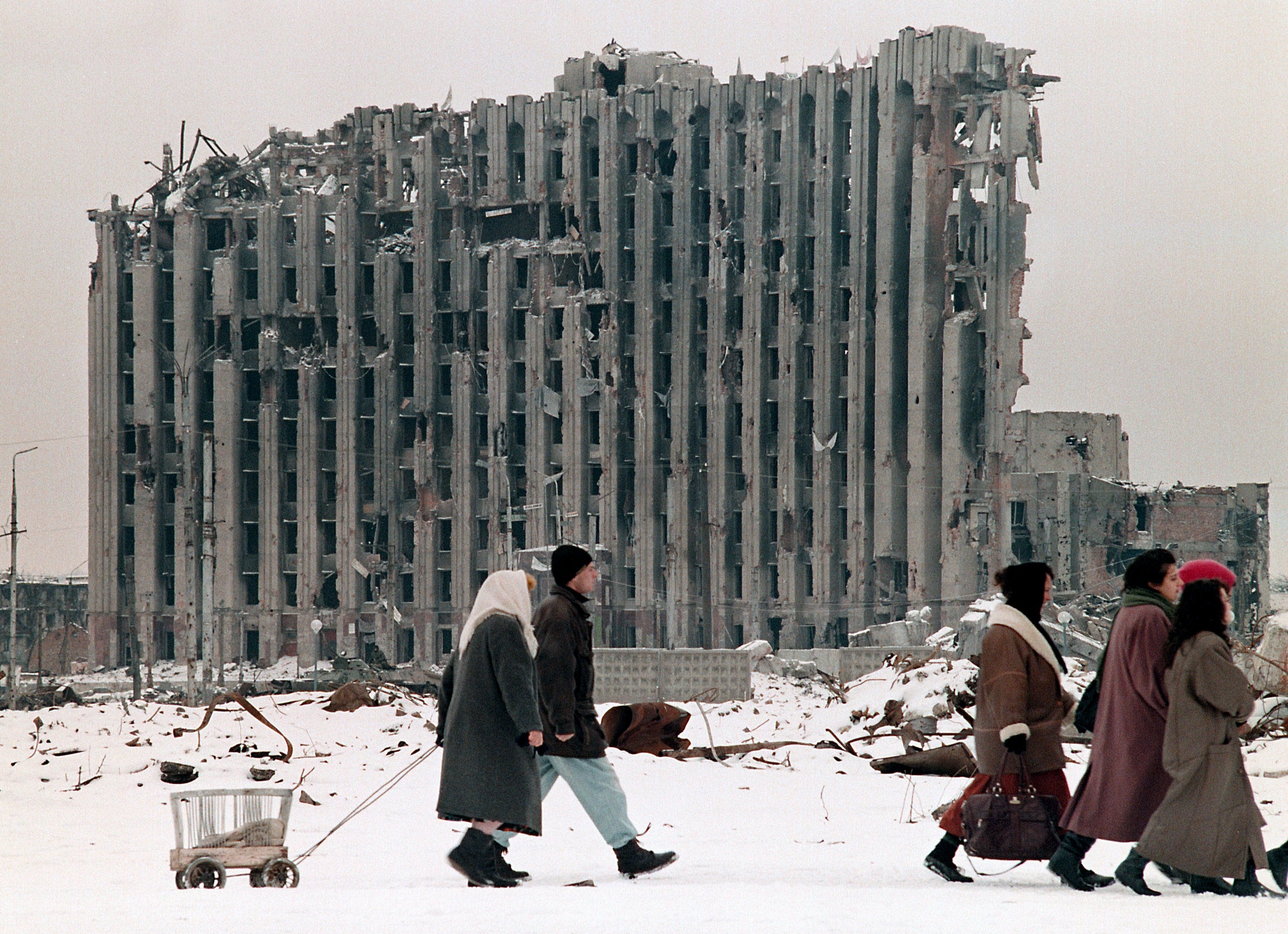Ukraine invasion: Why is Kyiv being likened to the ‘next Grozny’?
Boris Johnson warns Vladimir Putin intends to ‘Grozny-fy’ Ukrainian capital

UK prime minister Boris Johnson has said that he believes Russia’s invasion of Ukraine could see Vladimir Putin attempt to “Grozny-fy” Kyiv.
Speaking to ITV News while on a visit to Estonia as a 40-mile long convoy of Russian tanks headed towards the Ukrainian capital preparing to lay siege to it, Mr Johnson said of his Kremlin counterpart: “I think that he’s gone into a cul-de-sac and it’s very difficult for him to back out, and that’s the problem we’ve got.
“And if you’re sitting where he is, his only instinct is going to be to double down and to try and ‘Grozny-fy’ Kyiv, if you know what I mean. And to reduce it to rubble, and I think that that would be an unalterable moral humanitarian catastrophe and I hope he doesn’t do that.
“I hope he has the wisdom to see that there must be a better way forward but what he’s got to do is to disengage, with the column of tanks… he needs to put those tanks into reverse or turn them round and that is the number one thing.”
While many might not see what Mr Johnson means, he was in fact alluding to Mr Putin’s order that the city of Grozny, capital of Chechnya, be completely destroyed during the Second Chechen War of 1999-2000.
The North Caucasus region had tried to break away from Russia following the collapse of the Soviet Union in 1989 and the city became the seat of Dzhokhar Dudayev’s separatist government in 1991, a regime that expelled Russians and other non-Chechen citizens from its lands.
When Russian president Boris Yeltsin launched the First Chechen War to bring an end to hostilities, Grozny became a battleground and was carpet bombed by the Russian Air Force between December 1994 and February 1995, a campaign that destroyed many of its buildings and left thousands dead.
The assault was like “a great iron hand swooping down from the sky and crushing and tearing to pieces innocent people at random,” wrote journalist Anatol Lieven, who was there as 4,000 bombs fell every hour.
“Every morning when we got up, a malign giant had taken another bite out of the familiar streets,” he said.
Chechen guerilla fighters fought back and eventually secured a ceasefire that kept the city in their hands until aggressions were renewed in September 1999, when Russia again laid siege to Grozny.
Now under orders from Mr Putin, the country’s new prime minister and effective leader as Mr Yeltsin’s health failed, Russia’s military said it acted in retaliation for the bombing of apartment blocks in Moscow, Buynaksk and Volgodonsk, which the Chechens denied having had any part in.
Mr Putin duly succeeded Mr Yeltsin as president, initially in an acting capacity, on 31 December 1999 – the final day of the old millennium – and ramped up his vicious crackdown on the rebels, ordering the complete destruction of Grozny.
It was recaptured in February 2000, utterly decimated by shelling.
Of the brutal tactics employed by Russian soldiers on the ground, which reportedly included the rape and torture of civilians, one 21-year-old soldier told The Los Angeles Times in 2000: “Without bespredel [no rules warfare], we’ll get nowhere in Chechnya. We have to be cruel to them. Otherwise, we’ll achieve nothing.”
With the war brought to a bloody close, Mr Putin remarked coldly that his troops had “fulfilled their task to the end”.
In 2003, the United Nations proclaimed Grozny the most destroyed city on earth.
Subscribe to Independent Premium to bookmark this article
Want to bookmark your favourite articles and stories to read or reference later? Start your Independent Premium subscription today.

Join our commenting forum
Join thought-provoking conversations, follow other Independent readers and see their replies